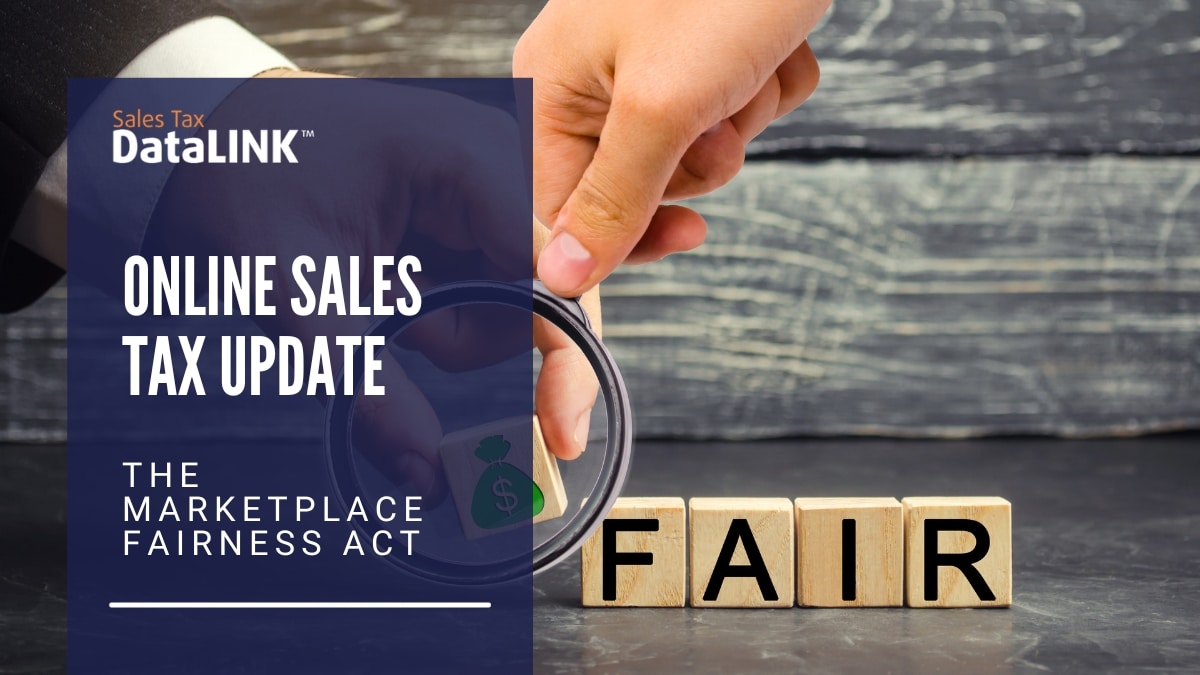The Marketplace Fairness Act made it through the Senate, but it hasn’t shown much traction in Congress. That doesn’t mean people haven’t been thinking about it. Here’s a round-up of the ideas about online sales tax that are being batted around while we wait to see what happens with the law. Maybe credit card companies should collect the tax. Online sellers and brick-and-mortar sellers alike conduct most of their transactions with plastic or virtual funds nowadays, and Visa, PayPal, and the rest are already taking some percentage of the sales on which merchants collect and remit taxes. Let the credit card companies take care of collecting, filing, and remitting sales taxes, and it won’t matter where the transactions take place. Maybe $1,000,000 is the wrong cut-off.
The Marketplace Fairness Act applies only to remote sellers with revenue of one million dollars or more each year. Internet retailers say that a million dollars in revenue might only net them $50,000. The added cost of collecting and filing online sales taxes could be the difference, some e-commerce merchants say, between staying in business and having to give up. No taxation without simplification? One of the biggest issues with collecting sales tax on internet purchases is the complications and confusion of the law. A company that makes cookies and candy, for example, might find it burdensome to determine which of its products are taxable in each state. Collecting sales tax from everyone just in case — a solution some shopkeepers have tried — can lead to lawsuits from consumers who are wrongly charged.
Maybe Texans shouldn’t have to remit sales taxes in Rhode Island until the sales tax code becomes more uniform. Maybe e-commerce should have to calculate and report, but not collect. Colorado, home of many interesting sales tax variations, has a law that requires remote merchants to figure up the sales tax and inform the consumers, but not to collect the taxes. The consumers must then, presumably, collect all the notifications and use them to figure out their use taxes. This law is going to the Supreme Court, though, with a challenge from the Direct Marketing Association, which is claiming that this levies an unreasonable burden on remote sellers.
Maybe consumers should bear the brunt of the law. Right now, consumers are supposed to pay use taxes if sales taxes aren’t collected. The majority of consumers are scofflaws who just don’t. Some proposals suggest that states should focus on getting their citizens to follow the law, not on getting other states’ citizens to take on the added cost and complication of collecting taxes. Once merchants begin filing taxes — perhaps because they’ve had a single transaction in a state — they have to continue to do so even when they have no sales. Consumers could just include their use taxes with their income taxes once a year.
Maybe brick-and-mortar stores should suck it up. Online sellers facing the possibility of being audited by multiple states sometimes suggest that retail is changing, just as the music industry has changed. If it’s time for record companies to accept the changes and move on, it might be time for brick-and-mortar stores to do the same. If they really believe that sales tax is consumers’ deciding factor between Main Street stores and their e-commerce competitors, they’re fooling themselves. Maybe we need something new. Some are calling for something completely different. The so-called “Fair Tax,” for example, would replace both sales and income tax with a uniform 23-cent sales tax on all goods everywhere. This is an exciting time for sales tax, including online sales tax, and we don’t know what will happen next. We do know that Sales Tax DataLINK can simplify sales tax enough for your company to enjoy the excitement instead of fearing the outcome.




